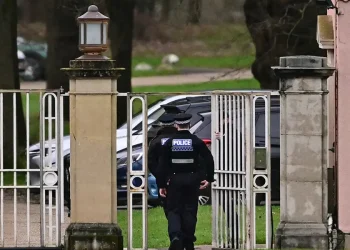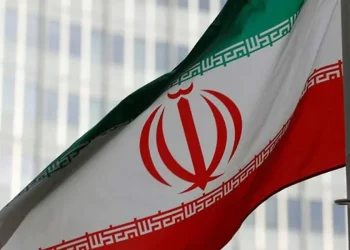CARACAS, Venezuela (news agencies) — The statement that upended Venezuela came 24 hours after polls closed in the presidential election.
With the reassuring tone of someone who has consistently been considered an underdog, opposition powerhouse Maria Corina Machado announced that her coalition had gathered more than two-thirds of vote tally sheets from polling centers nationwide, and that they show President Nicolás Maduro had lost his reelection bid.
The tally sheets known as actas — printouts measuring several feet that resemble shopping receipts — have long been considered the ultimate proof of election results in Venezuela. Opposition members knew they had to obtain as many of them as possible to refute the unfavorable election outcome they expected electoral authorities to announce.
Months of preparations and thousands of volunteers participated in the herculean task.
Their effort earned Maduro and his loyal National Electoral Council global condemnation, including from close regional allies, and fueled the anger of Venezuelans fed up with their nation’s cascading economy. In response, the government called for opposition leaders to be arrested, capping an election season marked by repression and irregularities.
This account of the opposition’s effort is based on public statements, as well as interviews with party representatives, volunteers and others involved, all of whom spoke on condition of anonymity for fear of government retribution.
Tens of thousands of volunteers participated in training workshops nationwide in recent months. They learned that under the law they could be inside polling centers on Election Day, stationed near voting machines, from before polls opened until the results had been electronically transmitted to the National Electoral Council in the capital, Caracas.
Organizational discipline was key to their success because the ruling party wields tight control over the voting system. Polling places are guarded by soldiers, civilian militia, police and loyalists of the ruling United Socialist Party of Venezuela.
On Sunday, officials attempted to block opposition volunteers from voting centers, and in some places, they succeeded. But elsewhere, the volunteers were unshakable, and once inside voting centers, they did not leave, in some cases until after 11 p.m.
“They took courage with their law in hand, with the polling station manual in hand, and they managed to enter,” Machado said Sunday, before the polls closed. She called party representatives and other volunteers “the heroes of this process.”
The 90,000 party representatives were taught to obtain a copy of the tally sheets — printed from electronic voting machines after polls close — before the results were transmitted to the council.
“Our representatives have the right to their tally sheet,” Machado said. “No representative leaves their voting center without the document in hand.”
The volunteers were also trained to use a custom-made app to report voting center irregularities such as opening delays or power outages, and to scan a QR code printed on every tally sheet.
Venezuelans have used electronic voting machines for about two decades. The machines record votes, provide a paper receipt for each voter and — after polls close — print copies of the tally sheets, whose length has led to the nickname, “chorizo,” or “sausage’ in Spanish.
The tallies show vote totals broken down by candidate, the QR code and the signatures of party representatives, an employee of the electoral body and poll workers who are drawn by lot to participate.
Every party representative is entitled to a tally sheet, while another copy is placed in an envelope and delivered to the National Electoral Council headquarters.
Infighting and disorganization had consistently limited the ability of government opponents to secure and safeguard the tallies in previous elections. But Machado said the opposition had obtained more than 70% of sheets. That number would eventually grow to over 80%.
The QR code scans gave a team of campaign workers immediate access to voting results, which they tabulated Sunday night and Monday.
The National Electoral Council has not yet shared the tallies on its website, which has been down since Monday. While it is not obligated to post images of the tally sheets, it has previously shared each sheet’s totals.
The council on Monday reported that Maduro received 5.1 million votes, while Edmundo González, representing the Unitary Platform opposition coalition, earned more than 4.4 million. Council President Elvis Amoroso on Friday provided updated results from 96.87% of tally sheets, gave Maduro 6.4 million votes and Gonzalez 5.3 million.









 American Dollar Exchange Rate
American Dollar Exchange Rate